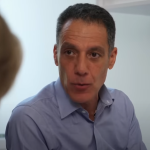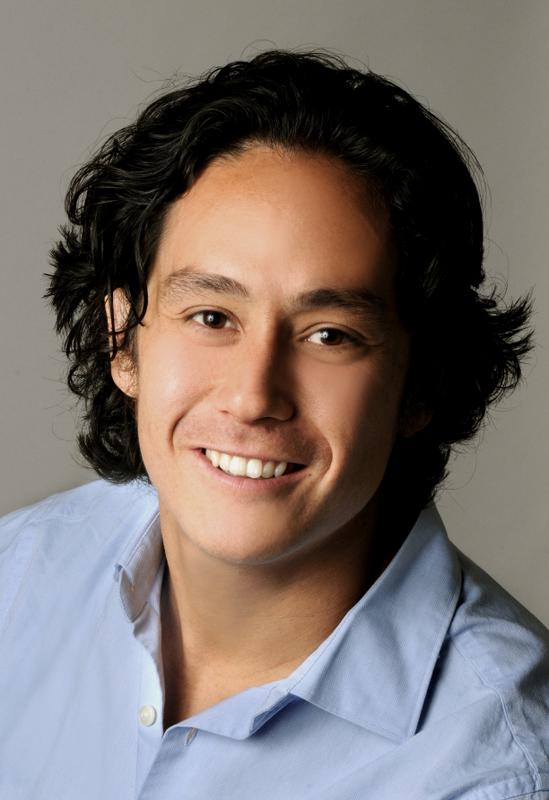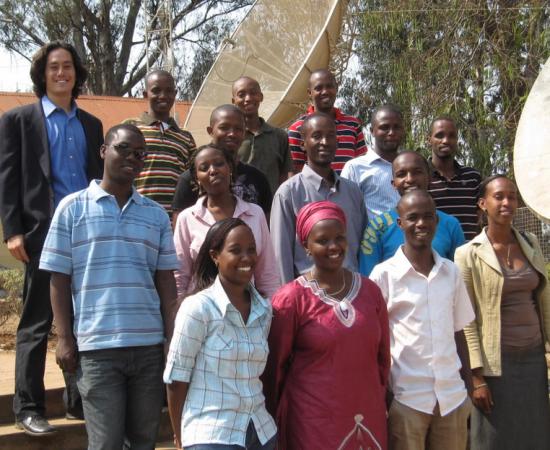Joshua Blumenstock, a doctoral student in the School of Information, has been awarded a research grant by the NET Institute to support his dissertation research on the economics of mobile phone usage in Rwanda.
As mobile phones reach the remote corners of the world, they have the potential to transform global development. One area of particular promise is "mobile money" (also referred to as "branchless banking"), the suite of mobile phone-based services that allow individuals to perform basic financial transactions over the phone network.
Branchless banking is available in over 80 countries, and typically allows a mobile phone owner to safely store money on his or her phone, to transfer that balance to another phone owner, and to pay for goods and services electronically (much like a debit card). Quite frequently, mobile money platforms are being deployed in areas without formal financial institutions, and worldwide it is estimated that roughly 1.7 billion people own a mobile phone but do not have a bank account. Given the rapid uptake of mobile money networks, it is surprising how little is known about the economic impacts of these networks.
Blumenstock's dissertation measures the broader impacts mobile phones are having on the agriculturally-based economies of rural Rwanda. In particular, he is exploring how person-to-person financial transfers via mobile phone can help Rwandans cope with risk and income volatility and deal with temporary economic shocks.
For his research, Blumenstock is analyzing a database provided by Rwanda's primary telecommunications operator with a record of every interpersonal monetary transfer over the network from 2005 to 2009. This dataset includes detailed transaction-level data on over one billion transfers and phone calls, and allows for a comprehensive network analysis of roughly one million individuals over four years.
In particular, Blumenstock is looking at behavior following a large earthquake in Rwanda in 2008. His preliminary research has found an unusually large amount of "mobile money" transferred to the region near the earthquake's epicenter from other, unaffected parts of the country. If a similar earthquake were to occur today, Blumenstock estimates that the current value of mobile money sent would be roughly USD$25,000 to $30,000.
The NET Institute research grant will enable Blumenstock to explore this phenomenon in more detail. He hopes to better estimate the extent of money transfers made in response to shocks like the 2008 earthquake, explore what types of individuals and relationships are most likely to use the "mobile money" network in these circumstances, and understand the impact of these shocks on local and global networks.
The broader goal of Blumenstock's research is to combine methods from computer science and development economics to better understand the impact of technologies in developing countries. In addition to his Ph.D. from the School of Information, Blumenstock recently completed a joint master's degree in economics, with a focus on development economics and political economics.
Before starting the Ph.D. program, Blumenstock studied at Wesleyan University, spent a year as a Watson Fellow researching the digital divide in five countries on four continents, interned at Microsoft Research, was one of the founding engineers of HOTorNOT.com, and co-founded the website 10over100.org.
The Networks, Electronic Commerce, and Telecommunications ("NET") Institute is a non-profit institution devoted to research on network industries, electronic commerce, telecommunications, the Internet, and "virtual networks" comprised of computers that share the same technical standard or operating system. The NET Institute has been funding cutting-edge research projects in these areas since 2003; the resulting research papers are published in the NET Institute working papers series.









